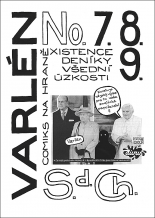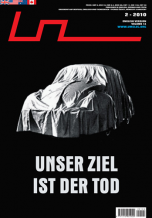Ilan Pappé is Israeli historian and socialist activist. He is a professor with the College of Social Sciences and International Studies at the Universty of Exeter in the United Kingdom, director of the university's European Centre for Palestine Studies, and co-director of the Exeter Centre for Ethno-Political Studies.
Prior to coming to the UK, he was a senior lecturer in political science at the Universty of Haifa (1984-2007) and chair of the Emil Touma Institute for Palestinian and Israeli Studies in Haifa (2000-2008).He is the author of The Ethnic Cleansing of Palestine (2006), The Modern Middle East (2005), A History of Modern Palestine: One Land, Two Peoples (2003), and Britain and the and the Arab-Israeli Conflict (1988).
Pappé supports the one-state solution, which envisages a binational state for Palestinians and Israelis
Pappé is one of Israel's New Historians who, since the release of pertinent British and Israeli government documents in the early 1980s, have been rewriting the history of Israel's creation in 1948, and the corresponding expulsion or flight of 700,000 Palestinians in the same year. He has written that the expulsions were not decided on an ad hoc basis, as other historians have argued, but constituted the ethnic cleansing of Palestine, in accordance with Plan Dalet, drawn up in 1947 by Israel's future leaders. He blames the creation of Israel for the lack of peace in the Middle East, arguing that Zionism is more dangerous than Islamic militancy, and has called for an international boycott of Israeli academics.
Pappé supports the one-state solution, which envisages a binational state for Palestinians and Israelis.
His work has been both supported and criticized by other historians. Before he left Israel in 2008, he had been condemned in the Israel's parliament; a minister of education had called for him to be sacked; his photograph had appeared in a newspaper at the centre of a target; and he had received several death threats.
Professor Ilan Pappé will present original research challenging popular myths surrounding the Israeli seizure of the West Bank and Gaza in 1967. By using Israeli government archives, he presents a strong case that the Government of Israel had planned for their occupation prior to 1967, and subsequently shaped the peace process through strategic planning aimed at retaining the land but not recognising the rights of the Palestinians living there.
http://www.youtube.com/playlist?list=PL1C979A17D069996D







![[b]ILAN PAPPÉ: THE ONGOING ETHNIC CLEANSING OF PALESTINE AND PRETENDING OF THE PEACE PROCESS |[/b] lecture](http://88.208.121.86/upload/articles/51644bae7eb0d.detailThumb.png)






















 We Are Rising National Gallery For You! Go to Kyjov by Krásná Lípa no.37.
We Are Rising National Gallery For You! Go to Kyjov by Krásná Lípa no.37.
Comments
There are currently no comments.Add new comment